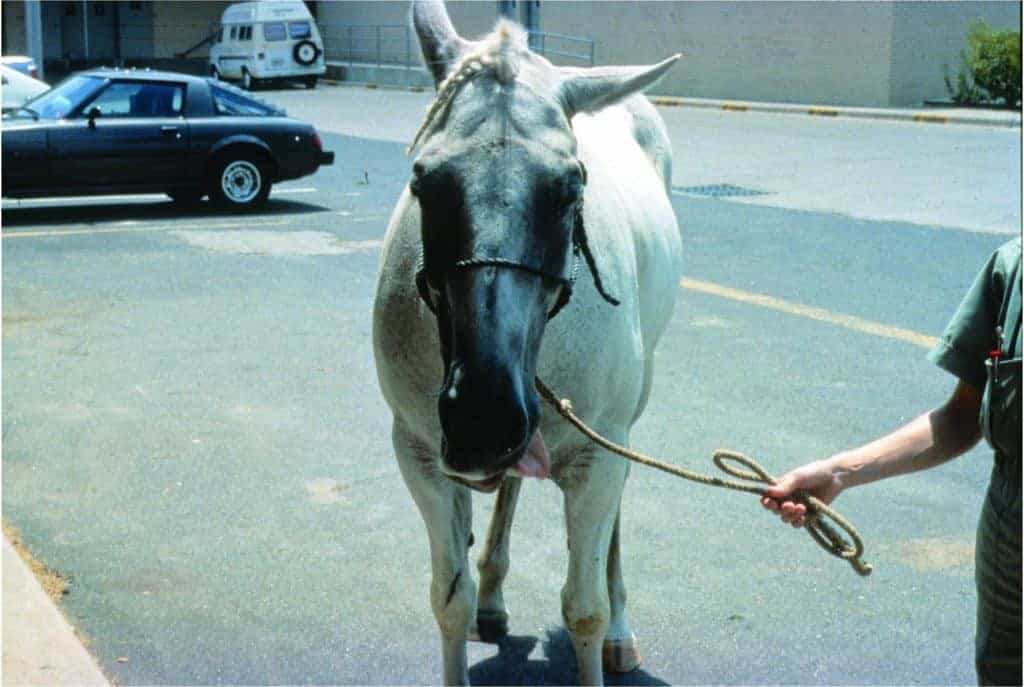
Equine Protozoal Myeloencephalitis: Past and Present
EPM still frustrates horse owners and veterinarians as one of the most common neurologic diseases in horses.

EPM still frustrates horse owners and veterinarians as one of the most common neurologic diseases in horses.
Horses in two Florida counties have tested positive for EEE and a Georgia horse is WNV-positive.
The NJDA is strongly reminding horse owners of longstanding state regulations adopted to protect horse health.

EIA researchers are now recommending that we test many horses less frequently and focus more effort on finding untested carriers.
Humans pose a risk of transmitting blood-borne infections between horses, such as equine infectious anemia.
Neurologist Amy Johnson, DVM, Dipl. ACVIM, was recently appointed to the faculty of New Bolton Center.
The American Horse Council is pleased to announce that Christopher McErlean, president of the Thoroughbred
Extensive rain, flooding, and warm temperatures have created prime conditions for mosquitoes, heightening the
In some cases, Thoroughbreds diagnosed and treated for wobbler syndrome using conservative therapy can recover
The International Collating Center, Newmarket, United Kingdom, and other sources reported the following
Researchers have made great strides in their understanding of EPM and improvements in diagnostic and treatment
Now is the time for horse owners to assess the lingering effects of spring’s wet weather.
A new USDA Animal and Plant Health Inspection Service report was released yesterday, indicating that the rate

Tetanus is a very serious disease that kills up to 80% of horses it infects.

Discussion of equine herpesvirus-1 neurologic disease and abortion, prevention, treatment and the latest research on preventing this disease in horses by Dr. Paul Lunn of Colorado State University.

One EHV-1 authority shares the top five things horse owners should know about EHV-1.
Stay on top of the most recent Horse Health news with
"*" indicates required fields